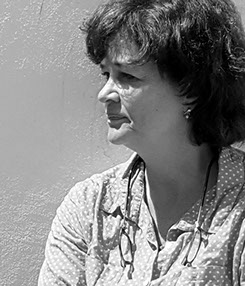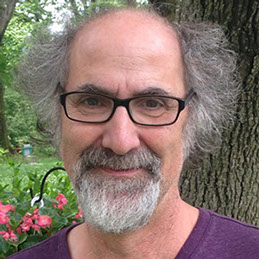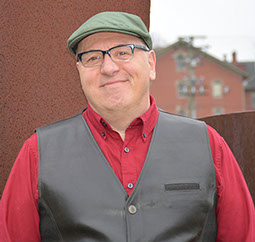

The Modern Mind and its Engagements
Ila
Ila Magazine approached many distinguished writers and established artists asking them to bring their views and worries out.
The points we raised with them can be boiled down into these following questions:
-How do we understand the term modern mind?.
-Have modernity or modernism created new tools for a fresh start or are we building on tradition as well?.
-How do Arabs deal with modernity and the epistemological rupture it represents?.
Here are bellow the replies without any change except where needed.
Gitta Pardoel
Architect , painter and prof. at art Academy / The Netherlands
The word modern has a few meanings according to any dictionary. The meaning like new, contemporary, opposite of tradition and the meaning of the modern period in art.
Before the modern period 19th century artists and architects made their work in commission of wealthy institutions (like the church) and patrons. The Industrial Revolution changed how people worked, lived, travelled. The development of new materials cleared the way to built totally different then before. Instead of the dark brick houses in which families of 10 lived the development of dwellings with much more light, space and air was possible, partly by the possibility to the prefabrication and serial production to reduce the costs.
So in architecture the new possibilities called international modernism, started as an ideology: more light, space and air. People were the centre of ideas and thoughts instead of religion in the years before.
The believe in the possibilities of the future was enormous. In art to be seen as a bubbly consecutive amount of periods in which humans played a central role. Artist used different views, different materials to make art with, other ideas of what is important in human life. For example the importance of the state of sleeping in the work of Dali and Miro. The kubistic view of Picasso and Braque. Showing the importance of emotions in the work of Kandinsky and Klee.
But this all changed after the big wars. The vision of a bright future for mankind cracked under the enormous pressure of horrible actions against humanity. The believe in one truth, if it is a religion or an ideology faded and opened ways to see the world differently.
After ww1 dadaism became important with its associative works and disgust of the world and its crimes. Someone like Marcel Duchamp changed the world of art considerably.
The artists were bound to find new ways and new ideas after ww11. Cobra searched for spontaneity in their works, matter art wanted to bridge the gap between 2 and 3 dimensional art, abstract expressionism searched for raw expressionism like de Kooning and pure abstractism like the operation of colour like Rothko.
In the sixties the philosophy was preoccupied by deconstruction (in mind Derrida), a part of postmodernism. Philosophers like Foucault, Lyotard and Derrida were known for their criticism against modernism because of its ordered worldview. According to Derrida something gets a meaning because of its context. If you change the context the meaning changes which implicates there is no absolute truth. When there is no truth, not one meaning, you can use and combine different meanings, different materials together. In architecture buildings with references to other styles like the roman or greek style were developed and built. Famous examples like the Guggenheim in Bilbao from Frank Gehry showed this complex and somewhat chaotic worldview.
And the philosopher Gilles Deleuze had influence with his theories on the chaotic times we live in. Like his rhizome idea in which he suggests that; "A rhizome does not start and does not end, but is always in the middle, between things, intermezzo.” This idea ends the romantic view we still live in that if we search enough we will find the truth. The new area of google and internet (horizontally) networking replaces slowly our romantic worldview.
This is the time I live in, I work in. Around me artist and architects working in pure modernistic ways and others working in postmodernistic styles. But for me the word modern in the meaning of new and contemporary, refers to the period after postmodernism and modernism. What will come next after modernism and postmodernism?
I see some trends like collaborations in art and sustainability in design and art. Like bioart using living materials to research and make art and design. These trends are only possible if capitalism convert itself towards socialism and the absolute truth thinkers convert themselves too into a more social system with room for respect of others and the principle of equivalence, in collaboration with science. Or recycle art like the work of Dave Hakkens which travels all around the world.
We have to find connections, learn from our differences, work on common goals.
We have to reduce the filth in the world, the pollution of our earth, the lack of respect for nature (other living species have the right to live in our world and we are part of them too). We have to stop the greed of humans making so many others suffer. And if architecture and art can add contributions to that for me this is modern.
Olga Zilberbourg
writer and editor, Russia
An interesting question about the modern mind. I wonder if "modern" means a secular mind. If modernity comes on the wings of the scientific age, evolution theory, and the separation between the religious belief and the human body, then mind must emerge as a locus of our understanding of modern humanity. In the absence of religious faith, the secular ideas about the formation of the mind have been heavily influenced by the nature vs. nurture debates -- to what extent the workings of our mind depend on what we inherit from our ancestors, and to what extent it's formed by education and creativity? For writers, this debate has been transposed in the language of "natural talent" vs. dedication to one's craft. If writers in the earlier eras described their inspiration as coming directly from God or forces outside their own body, modern writers -- except the extremely religious ones -- have to explain their writing as coming from their own minds and ideas. In my writing, I often attempt to overcome what I feel are my natural limitations. I work in English, my second language, and while this slows down the flow of my ideas, it often allows me to develop them deeper and in more unpredictable patterns than I could in Russian, my first language. I am also frequently forced to contend with the fact that a certain story logic that seems clear to me isn't clear to my English-speaking readers, so I go back to the manuscript and revise -- not to necessarily change my logic, but to clarify the transitions. This question of logic seems very important for modernity. Logic structures communication, but logic itself is structured by culture. It took me fifteen years of writing in English to realize that I save the most important piece of information for the end of the story, whereas my English-language readers expect the most important piece of information revealed or hinted at early on in the story. They expect the answer to "why are we reading this?" to come in the first or second paragraph. The Russian readers want to be taken on a hide-and-seek journey, and are more ready to unexpected twists on the way. Having discovered this difference, I've been attempting to use it to craft unique stories that captivate both groups. So, another way of answering this question, I see the main challenge for the modern mind in the constant need to transcend its own limitations, to accept the existence of ideas and thoughts that are beyond its comprehension, and yet to keep chiseling away at the differences. People often talk about our world becoming more interconnected, but in many ways these connections feel very shallow, and there's a lot of room to try to find ways to try to deepen and enrich the points of contact between cultures and civilizations.
Philip Terman
American Poet and Academic
Modernism and Religion
It seems the “modern mind” is associated with science, technology, greater communications, complexity. For literature it would be multileveled meanings, irony, etc. “modernity” —a critique of tradition, life in the presence broader connections but also of large-scale destruction on the human scale, as well.
It is also a greater recognition of our place in the universe, from a religious God-centered to a more existential, subjective one—from Christ, for example, to Kafka. Einstein, Freud.
Yes, I think modernity builds on established foundations, but is also a critique of those foundations.
I’m not sure how to answer the Arab related question. I can say that Jews continue to be divided (as always)—but seem to be getting more extreme, from the orthodox fanatic to the more liberal, non-religious Jew. This split is I think also in other religions and also in ideologies in general—modernity represents a fractured world of beliefs. Some wish to turn outward to live in a more global international society while others want the opposite—a rigorous nationalism.
Modernism also reflects a more inventive, creativity reflected in democratic institutions and centered more on individualism though loses some of the advantageous communal advantages.
In the west, the “modernist” writers include James Joyce, T. S Eliot etc., whose writing reflects a consciousness that contains the past, traditions. This is what separates modernism from its predecessor—the modern mind incorporates traditions.
Clarion University 2018
Scott Minar
American Poet and Translator
Modern Mind and Creativity
This is a difficult subject!. In my opinion, it is difficult if not impossible to separate the idea of the modern mind from its antecedents, in other words from its historical reference points, those that influenced its development.
If we mean by modern mind the current state of the intellect in general terms, then I would say that I understand the modern mind to be that state of personal and cultural, perhaps global consciousness that responds to the challenges of living and working in our various countries and societies today. Consciousness is an individual feature dependent upon the psychology of particular persons. Yet we also see that these particular persons are profoundly influenced by their families, their communities, their societies, and of course their circumstances, their social status, and their opportunities. The modern mind as it is manifested in any of us is therefore a result of our learning or training in a cultural way and relative to our educational opportunities and our context or environment. The most important feature of the modern mind is that it is in flux and changing relative to the demands and challenges of a world that is changing very rapidly and in unprecedented ways-- unprecedented here referring to the changes in technology and general scientific knowledge that intersect with the ways in which human beings behave, conduct themselves and their business, whatever we might mean by the latter term. Our destructive capacity has become perhaps more impressive than our constructive capacity. Yet history also shows that the human capacity for compassion and peacemaking is also impressive. I consider the peace made in South Africa for example, a peace that many thought improbable or impossible, among the best of the possible examples of the workings of the modern mind.
Yet it is very hard for me personally to say that modernism has produced what we might call a fresh start. Certainly it has produced New tools, New options in terms of thinking, problem-solving, and creating paths into the future. It seems to me that humanity has always faced a difficulty or problem between its capacity for inhumanity or cruelty, particularly in pursuit of power, and its capacity for love and compassion, or perhaps even a kind of neutrality or neutral stance with regard to others. Insofar as modernism has created an emphasis on critical thinking and the abandonment of certain prejudices that we might inherit from the past, we may be better prepared to chart a course for the future. But the fundamental choice between doing good and doing evil, or at least doing these things in ways that are clear and apparent to secular observers consider George Orwell's admonition against "barbarism" in any of its forms here) appears to remain the same. We must constantly strive to create the kind of world in which we ourselves would like to live and one in which we ourselves would like our children and grandchildren to live.
But as a westerner, I'm not sure that the answer of an outsider is very useful to a question of this nature. But I would observe that all people have to face and confront the problems of change and adaptation over time.
We have to adapt in ways that seem right to us. It seems that globally many cultures are confronted with the clash between matters of the past and those that seem to demand our attention regarding the present and the future. I am not sure any culture is responding to this difficulty in a particularly good way right now, but this is less a judgment and more an observation regarding how challenging such a response is. There is a common sort of wisdom that we should hold onto those things of the past that are still good, Jettison those things of the past that are no longer good, and accept changes and paths forward that we have thought through completely, anticipating potential negatives and dangerous pathways as best we can. In principle, perhaps this sounds reasonable and good. On the other hand, fear is often a stumbling block in both letting go of the past and creating a new future or present. In my opinion our humanity and compassion toward others must be at the very center of this decision making and at the very center of our management of our own fears.
Without these things we are in danger of behaving very badly indeed. Yet human beings require hope. It is not an option – all people require it. Fear must never stand in its way. It is necessary for us to be brave and it is most necessary for us to listen to the opinions of others and to make sure that they are heard. All of our important decisions our collective decisions.
But the unity of our societies also demands compassion for its members.
Such compassion is often among the hardest things we will ever do. Yet it is an ancient and eternal law that hatred only breeds hatred, and only by love is it cured. Perhaps the thing that will save us in the end is the concept of balance and maintaining it. It is the rudder that steers a ship safely through the storm.




started 1 MAY 2010 email : info@ila-magazine.com
design: gitta pardoel logo: modhir ahmed © ila-magazine